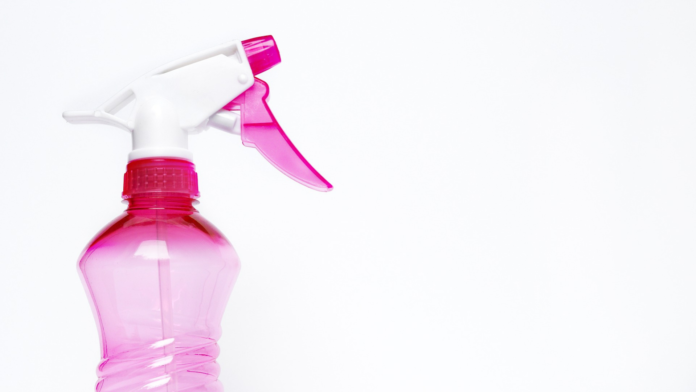Put away the hand sanitizer and disinfectant wipes. We’ve heard a lot in recent years about how our obsession with cleanliness could be changing our microbiome – the vast collection of microbes or microorganisms that live in and on us – and contributing to the rise in chronic conditions from asthma to diabetes and inflammatory bowel diseases.
Now, researchers from across Canada have found that exposure to common household cleaners is associated with higher body mass index (BMI) in children.
Using data from the Canadian Healthy Infant Longitudinal Development (CHILD) birth cohort, researchers studied associations between parental cleaning habits, the gut microbiome of over 750 infants at 3-4 months, and BMI at ages 1 and 3.
The findings show that infants in homes that frequently use disinfectants such as multi-surface cleaners experience the most dramatic changes in gut flora, with high use associated with lower levels of Haemophilus and Clostridium bacteria and higher levels of Lachnospiraceae. The changes were dose-dependent, meaning the higher the disinfectant use, the greater the changes in gut flora.
Although we still have lots to learn about the roles of specific microorganisms in our gut, researchers found an association between these gut flora changes and higher BMI in toddlers.
“We found that infants living in households with disinfectants being used at least weekly were twice as likely to have higher levels of the gut microbes Lachnospiraceae at age 3-4 months; when they were 3 years old, their body mass index was higher than children not exposed to heavy home use of disinfectants as an infant,” said Anita Kozyrskyj, a University of Alberta pediatrics professor, and principal investigator on the SyMBIOTA project.
Interestingly, babies living in households that used eco-friendly cleaners had different gut flora (lower levels of Enterobacteriaceae) but were less likely to be overweight as toddlers. But this doesn’t mean you should stock up on “green cleaners” quite yet, as research has yet to untangle the roles of eco-friendly products and healthier overall maternal lifestyles and eating habits on childhood obesity risk.
So for moms feeling guilty about the crumbs around the toaster, and the dust accumulating in the corners, relax. In the quest to give your kid the best start in life, a spotless home might actually be counterproductive.








































